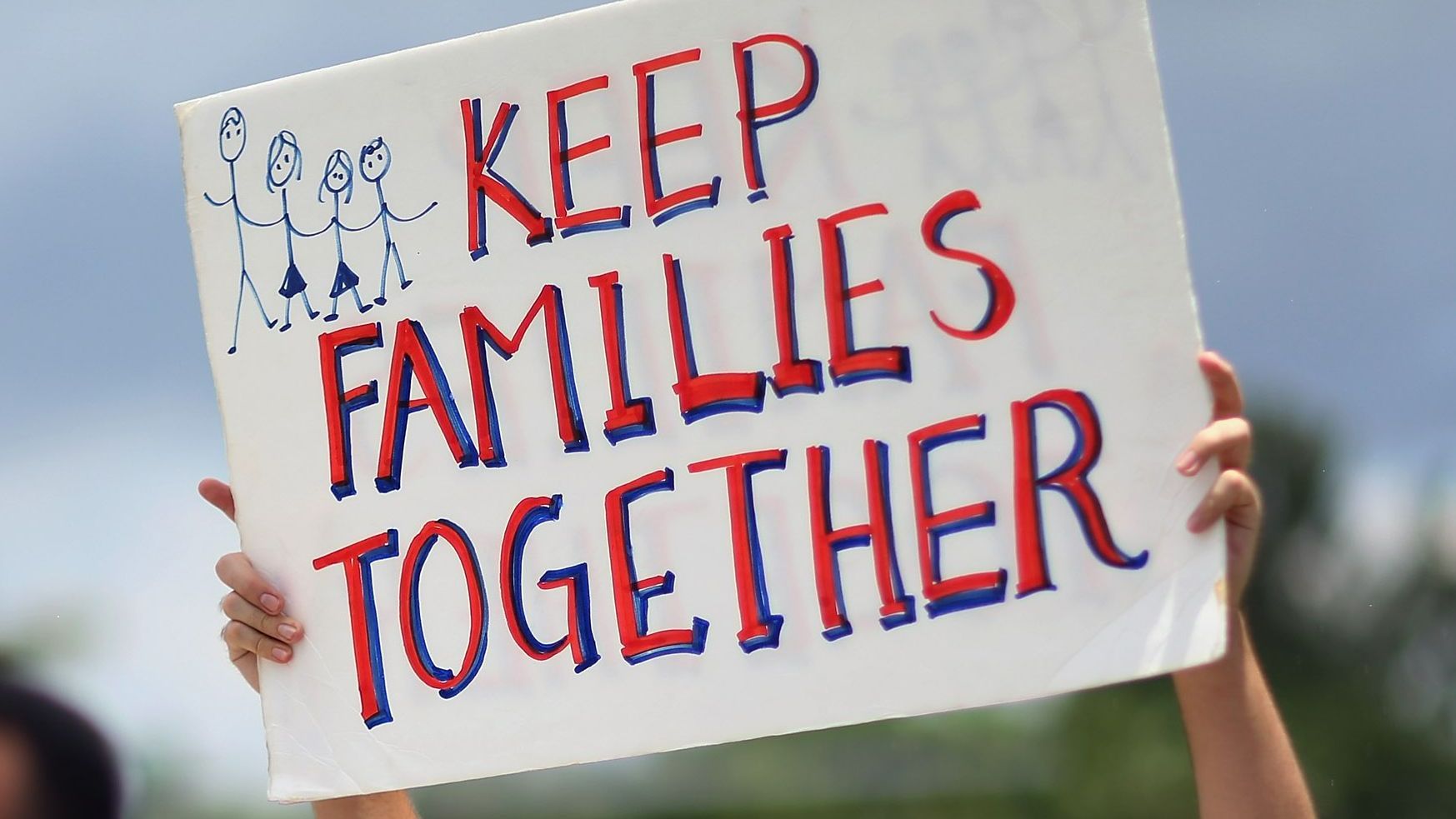What is Advance Parole?
Denice Flores • April 4, 2024
Advance parole is a travel document that permits you to travel outside the United States for temporary travel and return to the United States. Applicants for advance parole need to file Form I-131, Application for Travel Document with U.S. Citizenship and Immigration Services (USCIS) and pay the filing fee. When the application is approved, USCIS issues the applicant a Form I-512L, the advance parole document. The document must be presented to immigration officials to seek admission into the United States after traveling abroad.
There are several ways a person can qualify for and obtain advance parole. Applicants for adjustment of status, DACA recipients, and individuals who need to travel for urgent humanitarian reasons are three common types of applicants that can apply for advance parole, however there are more.
Applicants for adjustment of status
can apply for advance parole when they file their green card application or when the green card application is pending. Adjustment of status applicants must obtain advance parole before traveling outside the United States to avoid an issue with the green card application. Obtaining advance parole through an adjustment of status application does not require an emergency or humanitarian purpose for travel. Note, when you file for advance parole through an adjustment of status application the filing fee for Form I-131 is not required.
DACA recipients
may also apply for advance parole to travel abroad for humanitarian reasons or for employment or educational purposes only. Humanitarian reasons include medical attention or treatment, visiting a sick relative or for a relative’s funeral services. Educational purposes include studying abroad, academic research and more. Employment purposes include work, training, meetings, interviews, and other specific work assignments.
Certain individuals may also apply for advance parole due to an urgent humanitarian reason
or to further a significant public benefit.
To show that the travel is due to humanitarian, education, or employment reasons, the applicant must provide proof
of such to USCIS.
As mentioned, these are the three most common ways to obtain advance parole, but they are not the only ways. If you have questions about other ways to obtain advance parole, if you think you qualify for advance parole or have questions about your eligibility, please schedule a consultation with one of our experienced attorneys and we will be more than happy to assist you.
This blog is not intended to be legal advice and nothing here should be construed as establishing an attorney client relationship. Please schedule a consultation with an immigration attorney before acting on any information read here.
Denice Flores
This Facebook widget is no longer supported.
Similar Posts

On August 26, 2024 , the United States District Court for the Eastern District of Texas, in Texas v. Department of Homeland Security , Case Number 24-cv-306 administratively stayed the Department of Homeland Security from granting parole in place under Keeping Families Together for 14 days. In Texas v. DHS , the State of Texas and several other plaintiffs argue that the DHS has implemented policies that they believe violate federal immigration laws. Specifically, they claim that DHS's guidelines on immigration enforcement and deportation procedures are too lenient and do not align with statutory requirements. The plaintiffs argue that these policies undermine state sovereignty and contribute to increased illegal immigration, which they believe has negative repercussions for public safety and resources. During the 14 days, USCIS will not grant any pending parole in place application under Keeping Families Together ; USCIS will continue to accept applications for parole in place for certain noncitizen spouses and stepchildren of U.S. Citizens, and will continue to schedule biometric appointments and capture biometrics for applicants. Note, that the district court’s administrative stay order does not affect any applications that were approved before the administrative stay order was issued on August 26, 2024. As of now, the program is on hold for 14 days, but that hold could be extended while the court considers arguments in the case. If you have any questions or concerns, contact our office to schedule a consultation with our experienced immigration attorneys.

On June 18, 2024, President Biden announced a series of immigration actions using the authority granted to him by our existing immigration laws. These actions will help certain undocumented individuals in the United States, including: Spouses and children of U.S. citizens who have been living in the United States for at least 10 years. You may be eligible to apply for your green card without leaving the United States, if, as of June 17, 2024: ○ You are in the United States after entering without permission; ○ You have lived in the United States for at least 10 years and have never left; ○ You are legally married to a U.S. citizen or have a qualifying stepchild relationship with a U.S. citizen; and ○ You do not have certain criminal history or pose a threat to national security or public safety. If you meet these criteria, the government MAY grant you parole-in-place. Parole would be granted for a one-time period of three years. You may also be eligible for employment authorization for up to three years. If you are granted parole y ou may apply for your green card within three years of approval. Eligibility is determined on a case-by-case basis. College-educated DACA recipients and Dreamers who are qualified for nonimmigrant status, such as an H-1B specialty occupation visa. You may be eligible to apply for a temporary visa more easily, if: ○ You have a degree from an accredited U.S. institution of higher education; and ○ You have an offer of employment from a U.S. employer in a field related to your degree. Please note that these programs have NOT YET begun. Details on how to apply are expected to be released by the end of the summer through a Federal Register notice. This means: You cannot submit an application at this time. An early-filed application will be rejected . You should not pay anyone a fee associated with filing an application at this time. Be patient and take the time to find the right help. The wrong advice could harm your chances of staying in the United States, getting lawful status, or becoming a U.S. citizen. Don't be fooled by notarios and other consultants who promise immediate results or special solutions in order to steal your money. Many unscrupulous individuals will cost more than licensed attorneys! If you are unsure if someone is qualified to help, ask for proof of their credentials and retain a copy of that evidence. This program could also be legally challenged, which could impact its implementation. This makes it even more important to have a qualified, knowledgeable attorney. USE AILA’s Find an Immigration Lawyer Search, ailalawyer.org , to find a licensed immigration attorney in good standing. Or find an accredited representative at: https://www.justice.gov/eoir/find-legal-representation . FONT: https://www.aila.org/library/information-and-guidance-on-new-actions-to-promote-family-unity

Starting February 27, 2024, Ukrainian citizens who are physically present in the United States can apply for re-parole to continue to remain in the United States. To apply for re-parole the applicant needs to complete and submit Form I-131, Application for Travel Document, and pay the corresponding filing fees to USCIS. To be eligible for re-parole the applicant must show: Ukrainian citizenship The applicant was paroled into the United States on or after February 11, 2022 The applicant is physically present in the United States Urgent humanitarian reasons or significant public benefit for issuance of a new period of parole Compliance with the conditions of the applicant’s initial parole The applicant passed background checks The applicant warrants a favorable exercise of discretion If USCIS approves the re-parole application, the applicant may file Form I-765, Application for Employment Authorization, category (c)(11) to receive a work permit and be able to work lawfully in the U.S. It is important that the applicant waits until Form I-131 is approved to file Form I-765, otherwise, if USCIS denies the re-parole application, the filing fees for Form I-765 may not be refunded. This is great news for Ukrainians who are eligible for re-parole. If this applies to you, do not waste time and apply for re-parole now. If you have any questions or need assistance with applying for re-parole, please schedule a consultation with one of our experienced attorneys and we will be more than happy to assist you.

U.S. Citizenship and Immigration Services (USCIS) has announced a major change to the H-1B cap selection process. Under a final rule issued on December 29, 2025, USCIS will replace the long-standing random H-1B lottery with a wage-weighted selection system that favors higher-paid and more complex positions. The rule is scheduled to take effect on February 27, 2026 , just ahead of the fiscal year 2027 H-1B cap registration season, unless delayed by legal challenges. If implemented, USCIS is expected to release additional guidance explaining how employers must submit registrations under the revised process. This change marks one of the most significant reforms to the H-1B program in recent years. Up until 2025, all registrations were treated equally once the annual cap was reached. Under the new system, selection odds will be tied to wage levels based on the U.S. Department of Labor’s Occupational Employment and Wage Statistics data. All H-1B registrations will still be placed into a single selection pool, but registrations tied to higher wage levels will receive multiple entries into that pool, increasing their likelihood of selection. Lower wage levels will receive fewer entries, making selection less likely but not impossible. H-1B wage levels are not determined solely by salary. Each wage level reflects the complexity of the job, the level of responsibility involved, and the education and experience required . Entry-level positions involving routine duties and close supervision are generally classified at the lowest wage level, while positions requiring independent judgment, advanced skills, and significant responsibility fall into higher wage levels. The highest wage level is reserved for roles that involve expert knowledge, strategic decision-making, and substantial leadership or technical authority. USCIS is expected to closely scrutinize selected petitions to ensure that the wage level claimed during registration is supported by the job duties and salary offered in the petition. Any discrepancies between the registration and the petition may result in requests for evidence, denials, or enforcement action. With the elimination of the purely random lottery, employers should begin preparing early by carefully evaluating job descriptions, wage levels, and overall H-1B strategy. Accurate classification and thoughtful planning will be essential under this new wage-based selection system. If you are an employer considering H-1B sponsorship, or a foreign professional wondering whether your position may qualify under the new wage-based system, consulting with experienced immigration counsel is more important than ever. Santos Lloyd Law is actively advising clients on H-1B cap registrations and strategy under the new rules. To discuss your options or determine whether you may qualify, contact our office to schedule a consultation.

During the recent administration there has been an increase in issuance of Requests for Evidence for EB-1A petitions for those of Extraordinary Ability. A Request for Evidence is a request that is made by USCIS that should explain how the evidence is deficient in proving the criteria argued and what additional evidence needs to be provided by the applicant to meet the criteria. EB-1A petitions are already normally subject to higher scrutiny because their approval is the first step needed to apply for Lawful Permanent Residence or a green card. USCIS normally requires not just evidence but that the evidence be provided with context and information to show why it matters in a particular field. For example, if you were providing evidence of your membership in an organization that requires outstanding achievements of its members, just providing evidence of the membership is not enough. You must explain what that membership is and provide background information on the organization granting the membership. You also need to provide evidence on the criteria that is used to select the members, information on those who select the members to show that they are recognized experts, other documentation such as articles about the membership organization to show its importance, and any other relevant evidence and background information to show that the criteria is met. A request for evidence being issued prior to the current administration was not uncommon, but in the current climate it is more surprising to not receive a request for evidence for this type of case. It is important to remember that a request for evidence is not a denial. Depending on the validity of the information in the request and the substance some Requests for Evidence can be overcome, and the case be approved. It is important to carefully review the request and note if there are any errors in the content and application of the regulations by USCIS. If you have an attorney, you should work with them and make sure that you provide any evidence you think may be helpful. Although there is a deadline by which a response must be submitted, attention to detail and patience will go a long way when dealing with having to respond to a request for evidence. If you believe you may qualify for this type of visa, please feel free to contact our office.




